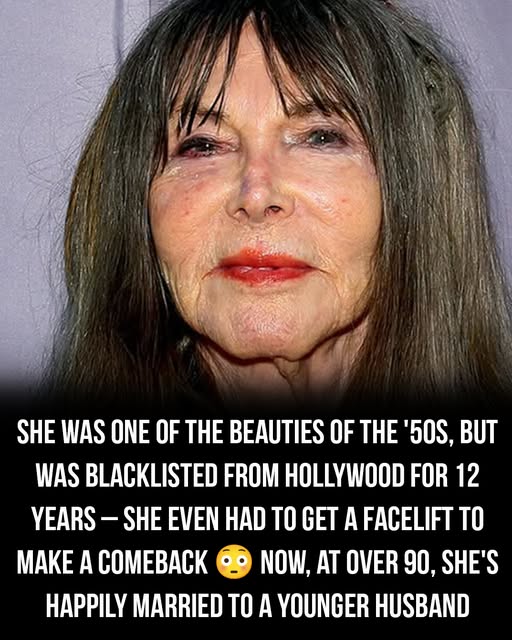Wait until you see who this really is…
Hollywood in the 1950s was a world of dazzling glamour and harsh realities, where careers could rise and fall at the whim of powerful studios. Among the many stars who graced the silver screen during this golden age, actress **Lee Grant** shone brightly—only to face an abrupt and devastating downfall that would change the course of her life forever.
With her striking beauty, grace, and undeniable talent, Grant was hailed as one of Hollywood’s most promising newcomers. Her film debut in the 1951 classic *Detective Story*, alongside Kirk Douglas, earned her both an Academy Award nomination for Best Supporting Actress and the Best Actress Award at the Cannes Film Festival. Audiences adored her, critics praised her, and producers predicted she would become one of the decade’s defining stars. But just as her career reached its peak, everything suddenly unraveled.
Grant’s mysterious fall from grace shocked Hollywood. Practically overnight, she was blacklisted from one of the industry’s top studios. Rumors swirled—some claimed she had defied powerful executives, others whispered about political controversy. The truth, however, was tied to the intense fear and suspicion that gripped Hollywood during the McCarthy era. In 1951, Grant delivered a heartfelt eulogy for actor J. Edward Bromberg, suggesting that the stress of being called before the House Un-American Activities Committee (HUAC) had contributed to his death. Her words, viewed as politically risky at the time, led to her being labeled “uncooperative” and subsequently blacklisted.
For the next 12 years, Grant’s once-promising career was derailed. Offers dried up, and her name quietly disappeared from studio rosters. Like many victims of Hollywood’s political paranoia, she paid a steep price for her integrity.
Despite these setbacks, Lee Grant ultimately made a remarkable comeback. She later appeared in acclaimed films such as *Valley of the Dolls*, *Shampoo*, *Columbo*, and *Mulholland Drive*, eventually winning an Academy Award for Best Supporting Actress. Her story remains a powerful reminder of the dangers of censorship and control in Hollywood—and of the resilience it takes to rise again after being silenced.






Post Comment